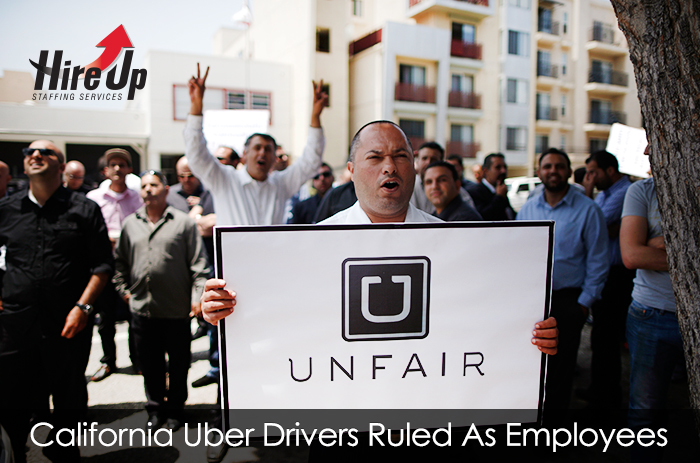
Recently, it has been revealed that in California, Uber drivers are – by law – employees and not contractors. Uber is a modern-day car service that has, for all intents and purposes, taken the traditional car service and taxicab industry by storm. The company’s innovative business model, however, has sparked controversy.
The California labor commission ruled this about Uber drivers, for which if the decision is upheld, would reshape the “sharing economy.” Uber is well on its way to becoming worth more than $40 million, and identifies itself as a platform facilitating driver to passenger transactions and vice versa, rather than an identifying as an employer.
The ruling by the California labor commission filed in California State Court last month challenged that statement. “[Uber holds itself] out as nothing more than a neutral technological platform, designed simply to enable drivers and passengers to transact the business of transportation,” said in the decision. “The reality, however, is that [Uber is] involved in every aspect of the operation.”
What made the commission decide so? The degree of control that Uber has on its drivers – all Uber drivers must go through background checks and DMV checks, their cars must be registered with Uber, and the cars registered have to be less than 10 years old. In addition, the drivers’ approval rating from their passengers must not fall below a certain score. Lastly, Uber also dictates the price for each trip, while the driver also gets a non-negotiable service charge.
The thing of the matter is that Uber has over 150,000 drivers, most of whom the people in the company have never even met in person. But now that California is stating that the company is an employer rather than a contractor, things may change – they would even have to take on additional responsibilities for these drivers, some of which do not even drive that much but rather only a few times each month in order to get additional income as they need.
For people who drive for Uber as their main job, if not their only source of income, getting themselves classified as an employee isn’t such a big deal. But for the aforementioned occasional drivers, it’s an entirely different game. For example, how will a company enforce a discrimination policy on “employees” the will probably never meet and probably only picks up a few fares random times in a month?
What does this mean for everyone? While noting that the commission’s ruling is not binding, one should also take note that the decision applies only to a single driver which is partially contradictory to a 2012 ruling by the same body stating that a driver is “not a bona fide employee.”
“Five other states have also come to the same conclusion,” Uber said. “It’s important to remember that the number one reason drivers choose to use Uber is because they have complete flexibility and control. The majority of them can and do choose to earn their living from multiple sources, including other ride sharing companies.”
Should the state of California choose to make this ruling binding or not, we as a staffing company are open to helping out any and all who need employment should they as Uber drivers get affected by this decision of the labor commission. At Hire Up Staffing, we staff in every industry (including professional services), and it would be a pleasure for us to help you find temporary and permanent job positions. To fill out an application now, CLICK HERE!



